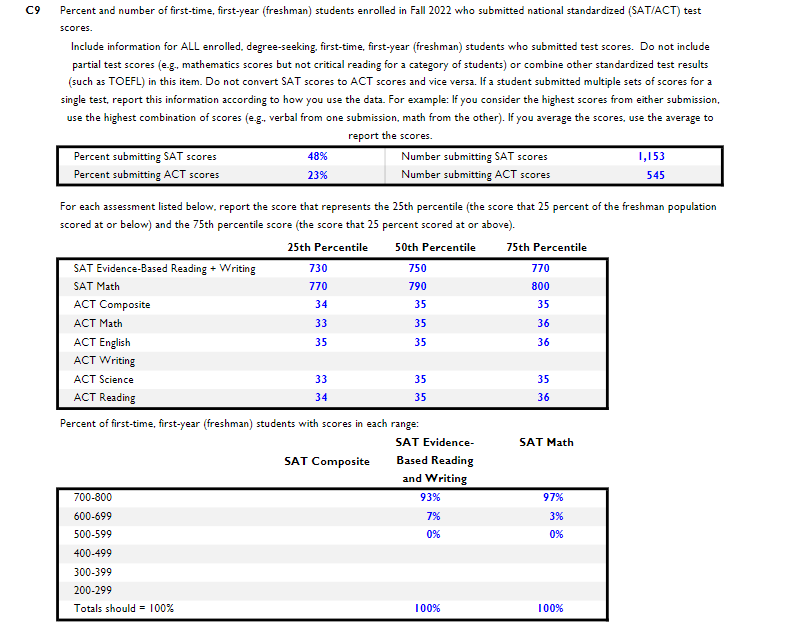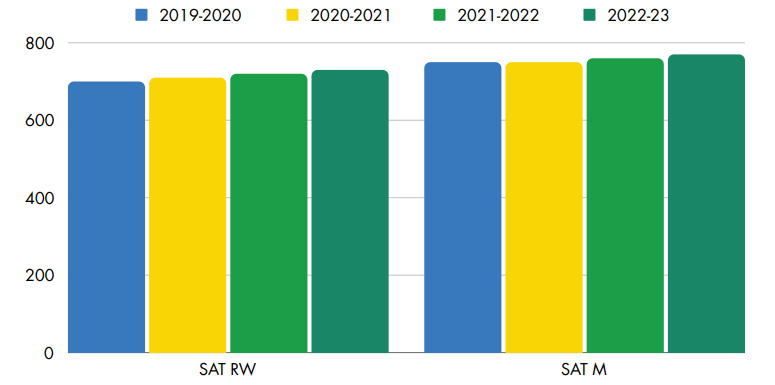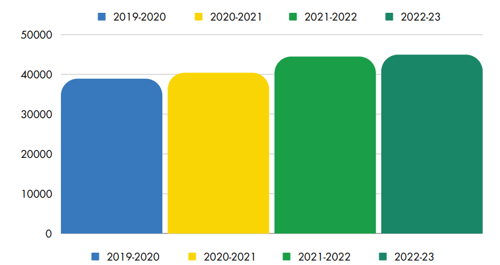Is Testing Really "Optional"?
In recent years, there has been a significant evolution in the landscape of college admissions policies, particularly regarding the role of standardized testing. What began as a movement towards "test optional" or "test flexible" policies has recently seen a shift back towards emphasizing standardized test scores in admissions decisions. But what does "test optional" really mean, and how does it affect students?
The Rise of Test Optional Policies:
At its core, a "test optional" policy means that submitting standardized test scores is not required for admission. Instead, students have the choice to include their scores if they believe they strengthen their application. This approach aims to provide flexibility for students who may not perform well on standardized tests or who feel that their scores don't accurately reflect their abilities.
Test optional policies emerged as a response to concerns about the fairness and validity of standardized tests like the SAT and ACT. These policies aimed to provide students with the flexibility to choose whether or not to submit test scores as part of their college applications. Advocates argued that standardized tests may not accurately reflect a student's potential or predict their success in college, particularly for students from underrepresented backgrounds.
The COVID-19 pandemic further complicated the landscape of college admissions. Many colleges temporarily adopted test optional policies to accommodate students who were unable to take standardized tests due to test cancellations or other challenges. However, as testing opportunities have resumed and the situation has stabilized, some colleges have returned to requiring test scores as part of the admissions process.
Factors Contributing to the Shift:
Despite the initial momentum towards test optional policies, several factors have contributed to the recent resurgence of standardized testing in college admissions. Firstly, standardized tests offer colleges a standardized measure of academic achievement that can be used to evaluate applicants from diverse educational backgrounds. Additionally, some colleges have found that test scores can serve as a useful benchmark for comparing applicants and making admissions decisions, especially when faced with a large pool of candidates.
Navigating College Admissions:
Amidst these changes, it is essential for students to stay informed about the admissions policies of the colleges they are interested in applying to. It is also crucial to carefully consider whether or not to submit test scores based on individual circumstances and strengths. Ultimately, the best approach to college admissions will vary depending on each student's unique situation and goals.
For applicants, the decision to go test optional can have both pros and cons. On one hand, it can alleviate the pressure of standardized testing and offer a more holistic approach to admissions, where other aspects of a student's academic and personal achievements are considered. However, it's essential to understand that going test optional doesn't necessarily mean your application will be judged solely on other factors. In some cases, particularly at highly selective institutions, strong test scores may still be beneficial, especially if they align with the rest of your application.
Ultimately, whether to take advantage of a test optional policy depends on your individual circumstances and the specific requirements of the colleges you're applying to. If you're unsure, consider reaching out to admissions counselors or college advisors for personalized guidance. And remember, regardless of your decision, focus on presenting the best possible version of yourself through your application materials, whether or not they include test scores.
The Data Behind Test Optional Admission Decisions:
Recent data from the Common Data Set and other sources has shown a consistent trend: students who submit standardized test scores with their college applications tend to have a higher likelihood of admission. Across various institutions, this pattern holds true, indicating that standardized test scores remain a valuable component of the admissions process for many colleges and universities. While some institutions have implemented test optional policies in recent years, the data suggests that submitting test scores can still provide an advantage in the highly competitive admissions landscape.
One such example of a college's Common Data Set is below. While this college lists "test-optional", 71% of students who were given admissions and accepted their seat came in through test score submission. At an already selective university with 54,588 applications, only 0.013% of students entered with not having test scores.
To find a college's Common Data Set, Google "College Name Common Data Set". Be sure to look at the most recent year's data.

Admissions officers use test scores as one of many factors to evaluate applicants, and strong scores can help demonstrate a student's academic readiness and potential for success in college. Therefore, students should carefully consider whether to submit their test scores based on their individual circumstances and the admissions policies of the colleges they are applying to. Ultimately, leveraging strong test scores can enhance a student's overall application and improve their chances of gaining admission to their desired institutions.
The graph below shows that over the last few years the test scores at this college have actually risen. In 2019-2020 the average scores for 25th percentile in SAT Reading/Writing were a 700 and a SAT Math 750. In 2022-2023, we see R/W as 720 and Math 760.

Likewise, the trend continues that more students are applying to this college, with applications rising from 39,000 in 2020 to over 45,000 in 2023.

Moving Forward:
In today's competitive college admissions landscape, preparing for the ACT and SAT remains highly relevant and crucial for students striving to meet college requirements and achieve their academic goals. Despite the emergence of test-optional policies at some institutions, standardized test scores continue to serve as an essential benchmark for evaluating applicants' academic abilities and potential. Many colleges and universities still consider these scores alongside other application materials, such as GPA, extracurricular activities, and essays, to make informed admissions decisions.
Therefore, starting test preparation early allows students to familiarize themselves with the format, content, and timing of these exams, giving them a competitive edge and increasing their chances of securing admission to their preferred colleges. Moreover, strong ACT and SAT scores can also open doors to merit-based scholarships and other financial aid opportunities, further underscoring the importance of early and diligent test preparation in today's college admissions landscape.
In conclusion, this recent shift in college admissions policies underscores the importance of staying informed and adaptable in the college application process. As students navigate these changes, it is essential to consider all aspects of their applications and to make informed decisions that align with their goals and aspirations.

Dr. Amanda Sterk
Dr. Amanda Sterk is the Director of College and Career Advising at Method Learning. Dr. Sterk has guided thousands of students through academic planning, career exploration, and applying and succeeding in college admissions and scholarships. She is co-author of the nationally recognized college admissions workbook, College UnMazed: Your Guide to Navigate the High School to College Maze. Dr. Sterk graduated with her Bachelors in Education from the University of Northern Iowa, Masters in Counseling from Drake University, and Doctorate in Educational Leadership from Creighton University.


